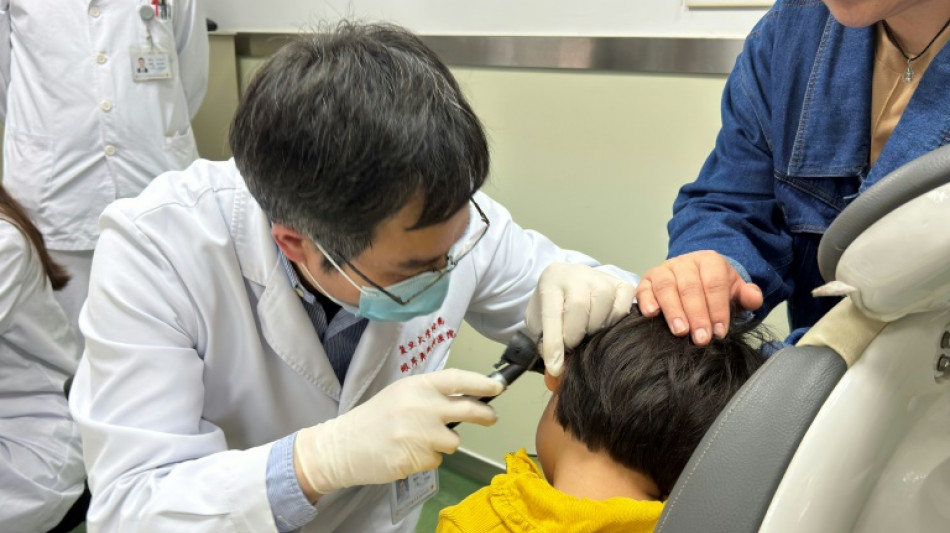
-
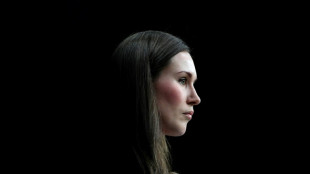 Finnish ex-PM Marin says her female cabinet faced torrent of sexism
Finnish ex-PM Marin says her female cabinet faced torrent of sexism
-
Sudan army-backed council to meet on US truce proposal: govt source

-
 BP profit surges despite lower oil prices
BP profit surges despite lower oil prices
-
Shein vows to cooperate with France in childlike sex doll probe

-
 National hero proposal for Indonesia's Suharto sparks backlash
National hero proposal for Indonesia's Suharto sparks backlash
-
Indian great Ashwin out of Australia's BBL after knee surgery

-
 Indian Sikh pilgrims enter Pakistan, first major crossing since May conflict: AFP
Indian Sikh pilgrims enter Pakistan, first major crossing since May conflict: AFP
-
Asian markets slip as traders eye tech rally, US rate outlook

-
 Nintendo hikes Switch 2 annual unit sales target
Nintendo hikes Switch 2 annual unit sales target
-
Typhoon flooding kills 5, strands thousands in central Philippines

-
 Jobe Bellingham finding his feet as Dortmund head to City
Jobe Bellingham finding his feet as Dortmund head to City
-
US civil trial to hear opening arguments on Boeing MAX crash

-
 Jamie Melham on Half Yours only second woman to win Melbourne Cup
Jamie Melham on Half Yours only second woman to win Melbourne Cup
-
Myanmar scam hub sweep triggers fraudster recruitment rush

-
 Biggest emitter, record renewables: China's climate scorecard
Biggest emitter, record renewables: China's climate scorecard
-
Floods strand people on roofs as typhoon pounds Philippines

-
 Asian markets swing as trades eye tech rally, US rate outlook
Asian markets swing as trades eye tech rally, US rate outlook
-
South Korea to triple AI spending, boost defence budget

-
 Trott to leave as Afghanistan coach after T20 World Cup
Trott to leave as Afghanistan coach after T20 World Cup
-
Late queen's fashion to go on show at Buckingham Palace
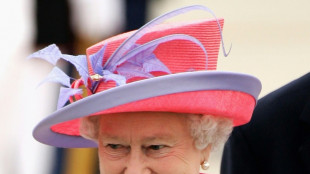
-
 In Morocco, exiled Afghan women footballers find hope on the pitch
In Morocco, exiled Afghan women footballers find hope on the pitch
-
EU scrambles to seal climate deal ahead of COP30

-
 New Yorkers expected to pick leftist Mamdani in stunning election
New Yorkers expected to pick leftist Mamdani in stunning election
-
Pining for Pinochet: how crime fanned nostalgia for Chile's dictator

-
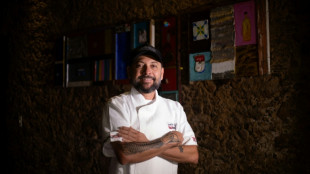 Why an Amazon chef said no to a vegan dinner for Prince William event
Why an Amazon chef said no to a vegan dinner for Prince William event
-
Cement maker Lafarge on trial in France on charges of funding jihadists

-
 Worker dies after medieval tower partly collapses in Rome
Worker dies after medieval tower partly collapses in Rome
-
Run-machine Labuschagne in form of his life ahead of Ashes

-
 Prince William plays football, volleyball in Rio on climate trip
Prince William plays football, volleyball in Rio on climate trip
-
Jamaicans mobilize aid in aftermath of Melissa's wreckage

-
 Starbucks cedes China control to Boyu Capital
Starbucks cedes China control to Boyu Capital
-
'Wild at Heart' actress Diane Ladd dies at 89

-
 Xhaka lifts Sunderland into fourth after Everton draw
Xhaka lifts Sunderland into fourth after Everton draw
-
Brazil records biggest annual fall in emissions in 15 years: report

-
 Victor Conte, mastermind of BALCO doping scandal, dead at 75: company
Victor Conte, mastermind of BALCO doping scandal, dead at 75: company
-
Trial opens in 1st US civil case on 2019 Boeing MAX crash

-
 Barrett brothers out of All Blacks' clash with Scotland
Barrett brothers out of All Blacks' clash with Scotland
-
Medieval tower partially collapses in Rome, trapping worker

-
 Arsenal's Arteta says injured Gyokeres out of Slavia Prague tie
Arsenal's Arteta says injured Gyokeres out of Slavia Prague tie
-
Alonso says 'quality' Wirtz helped get him Real Madrid job

-
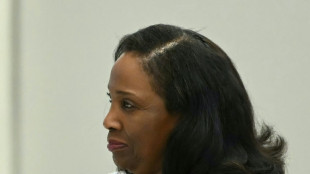 US Fed's Cook warns inflation to stay 'elevated' next year
US Fed's Cook warns inflation to stay 'elevated' next year
-
Blue heaven: huge crowds salute Los Angeles Dodgers in victory parade

-
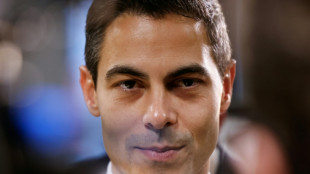 Dutch centrist Jetten clinches election win: final tally
Dutch centrist Jetten clinches election win: final tally
-
Mamdani extends olive branch to anxious NY business community
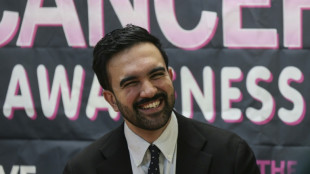
-
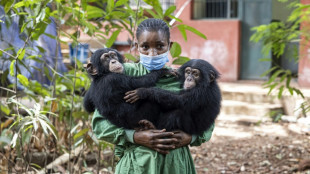 Sierra Leone chimpanzee sanctuary reopens after deforestation protest
Sierra Leone chimpanzee sanctuary reopens after deforestation protest
-
Shein bans sex dolls after France outrage over 'childlike' ones

-
 England full-back Steward doubtful for Autumn rugby clash with Fiji
England full-back Steward doubtful for Autumn rugby clash with Fiji
-
Bayern know how to 'hurt' PSG, says Neuer

-
 Rybakina downs Swiatek to reach WTA Finals last four
Rybakina downs Swiatek to reach WTA Finals last four
-
Ex-France international Ben Yedder to stand trial on rape charges


'Whole family cried': New gene therapy offers hope for deaf kids
Zhu Yangyang babbles away like a typical happy three-year-old, calling out for "mama" and "papa" and accurately naming colors -- a remarkable achievement considering he was completely deaf just months ago.
He is one of five children whose hearing was restored through a revolutionary new gene therapy in a clinical trial led by Chinese and American researchers, offering new hope for those born with a rare genetic mutation.
Yangyang's mother Chang Yiyi says she was moved to tears when she realized, around three weeks after the treatment last September, that Yangyang could hear her knocking on the door.
"I hid in a closet and called for him, and he still responded!" she told AFP in an interview from Shanghai.
The results of the study, published Wednesday in the prestigious journal Nature Medicine, mark the first time the procedure was performed on both ears. This led to significant improvements in speech perception and the ability to locate the source of sounds compared to treatment in just one ear.
"This is absolutely a turning point," Zheng-Yi Chen, the study's senior author at the Eaton-Peabody Laboratories at Mass Eye and Ear, told AFP, adding companies are now conducting clinical trials, including two in Boston, with the goal of moving towards regulatory approval.
"If the results hold, without any complications, I think in three to five years, it may be a medically approved product," he added.
- Rare mutation -
There are around 26 million people globally with genetic forms of deafness, with this particular therapy focusing on people born with a mutation of the OTOF gene -- roughly two to eight percent of inherited deafness cases.
This defect means they are unable to produce the protein otoferlin, which is needed for hair cells in the inner ear to convert sound vibrations into electrical signals that can be sent to the brain.
The treatment involves injecting a modified virus into the inner ear that smuggles in a working version of the OTOF gene, restoring hearing.
When they realized that Yangyang could hear for the first time, "the whole family cried" including Yangyang's mother and grandmother, said lead study author Yilai Shu of the Eye & ENT Hospital of Fudan University in Shanghai.
Chang, a 26-year-old homemaker, said that taking care of her son has become much easier since he began developing language skills, and the family soon hopes to move him from a speech rehabilitation school to traditional kindergarten.
- More genetic targets -
Shu led the research team that delivered the very first OTOF gene therapy in 2022, pioneering a treatment that has since been administered to more children around the world, including in the United States and the United Kingdom.
Treating both ears presented new challenges, he told AFP. Doubling the surgical procedures increased the risk of side effects.
However, careful dosing minimized the immune response, and only mild to moderate side effects -- like fever, vomiting and slightly elevated white cell counts -- were observed.
All five children, who ranged in age from one to 11, saw major improvements.
Two of them gained an ability to appreciate music -- a more complex acoustic signal -- and danced happily in videos recorded for the study.
Surprisingly, even the 11-year-old has gained some capacity to understand speech and talk, even though it was expected it would be too late for the brain to acquire this ability if it had never before perceived sound.
"That really shows our brain has a plasticity that maybe lasts much longer than we originally thought," said Chen. The clinical trial is ongoing, and the participants will be monitored for long-term follow up.
Meanwhile, Shu and Chen said they are working on further animal testing to develop treatments for other causes of genetic deafness, including those related to the GJB2 gene -- the most common cause of deafness present at birth.
T.Egger--VB




